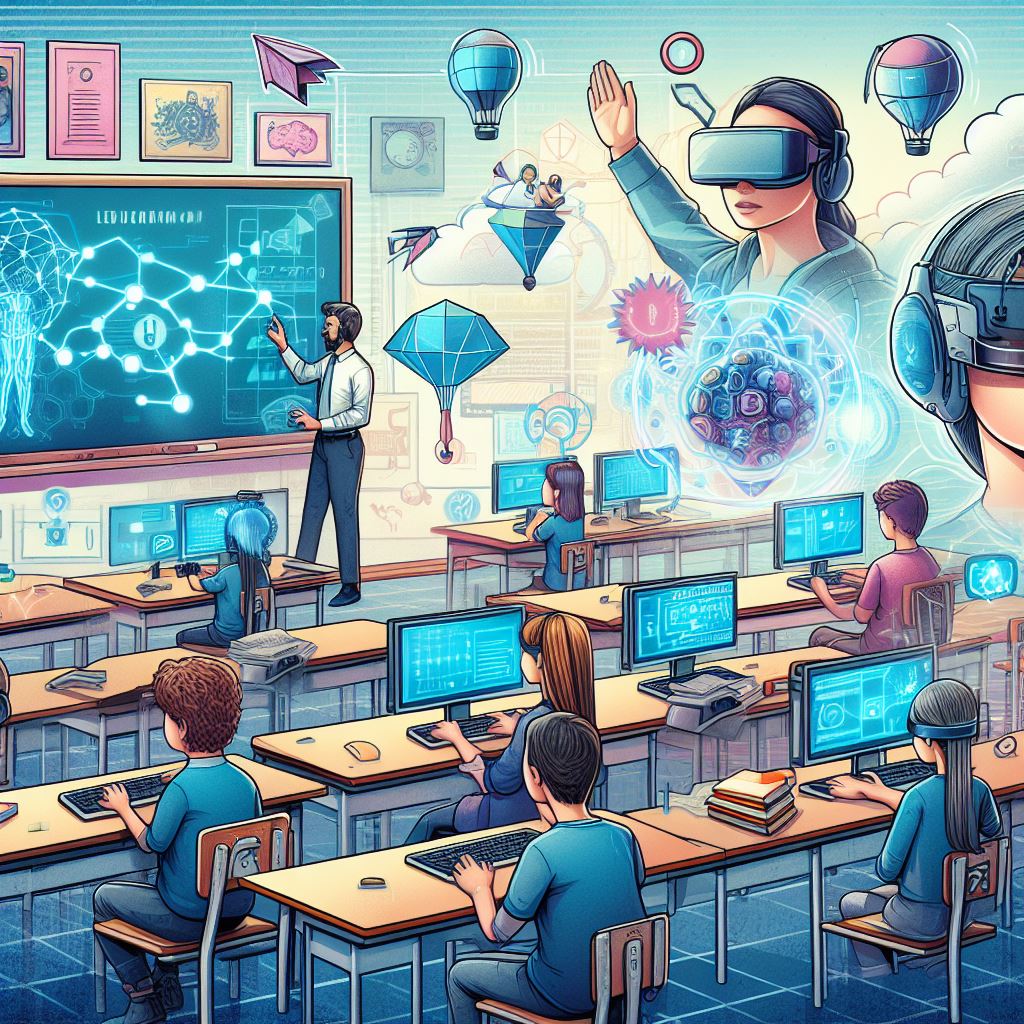
Metaverse in Education: Future of Immersive Learning
Introduction to the Metaverse
Definition and Origins The metaverse, often referred to as a "digital universe" or "3D internet", is a collective virtual space created by the convergence of augmented, virtually enhanced physical reality, and interactive digital spaces. It's a realm where users can interact through avatars, transcending the boundaries of the physical and digital world.
Historically, the concept of a metaverse was popularized by science fiction, particularly in the 1992 novel "Snow Crash" by Neal Stephenson. Today, with advancements in Virtual Reality (VR), Augmented Reality (AR), and digital infrastructure, the once fictional idea is becoming a reality.
Current Applications Across Sectors Apart from education, the metaverse is permeating various sectors:
- Entertainment: Virtual concerts, movies, and gaming experiences.
- Business: Virtual conferences, product showcases, and digital twins of physical entities.
- Social Media: Immersive platforms where users socialize as avatars.
Metaverse and Education: A New Dawn
Technological Infrastructure for Metaverse-enhanced Learning Supporting the "virtual classrooms in the metaverse" requires robust infrastructure:
- High-Performance Servers: To handle real-time interactions.
- Advanced VR & AR Hardware: Headsets, gloves, and haptic feedback devices.
- Software Platforms: Customized eLearning platforms to create and manage virtual content.
Benefits of Immersive Metaverse Education
- Engaging Learning Experience: Leveraging VR and AR for practical, hands-on training, making abstract concepts tangible.
- Global Collaboration: Students from different parts of the world can interact and learn together.
- Personalized Learning Paths: AI-driven systems can gauge a student's performance and modify content accordingly.
- Real-world Application: Simulating real-world scenarios for practical training, e.g., medical students practicing surgeries.
Potential Pitfalls of Metaverse Education
- Over-reliance on Technology: A shift away from essential traditional learning methods.
- Accessibility Concerns: Not all students might have access to the required tech, leading to inequality.
- Privacy and Security: Concerns about data breaches and cyber threats in the virtual realm.
Case Studies: Metaverse in Action
XYZ University: This institution integrated a complete metaverse platform for their architecture program. Students design structures and take virtual tours, receiving real-time feedback from professors worldwide.
ABC High School: Introduced AR-driven history lessons where students take a walk through historical events, witnessing them first-hand.
Stakeholder Opinions
Students: The majority found metaverse-enhanced learning engaging and informative. However, a few missed the personal touch of traditional classrooms.
Educators: Most educators appreciated the innovative approach, citing increased student participation. A segment raised concerns about potential distraction due to excessive tech reliance.
Parents: While many parents were thrilled about the tech-forward approach, concerns regarding screen time and potential health impacts were also prevalent.
Looking Ahead: The Future of Metaverse in Education
Considering the "implications of metaverse in education", we can anticipate:
- Holistic Learning Environments: Combining metaverse with traditional learning to create balanced educational experiences.
- Wider Accessibility: Efforts to make metaverse tech affordable and accessible to students globally.
- Enhanced Security Protocols: With rising cyber threats, ensuring a safe virtual learning environment will be crucial.
In conclusion, while the metaverse presents a transformative potential in education, its effective integration requires a balanced approach, addressing its challenges while maximizing its benefits. The journey of incorporating this "virtual realm" into education is just beginning, and the possibilities are vast and exciting.
Online Learning Technology


